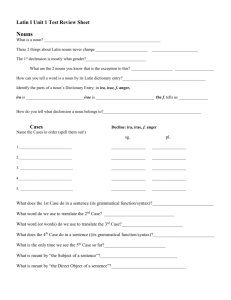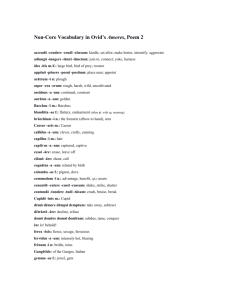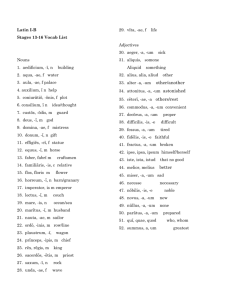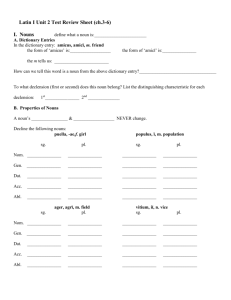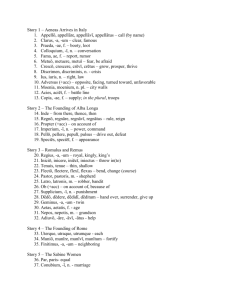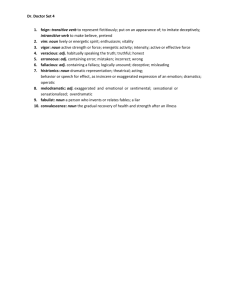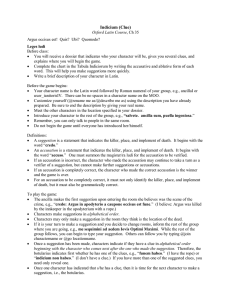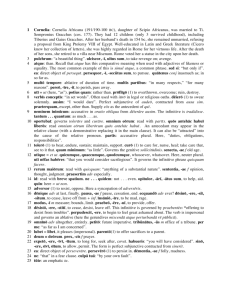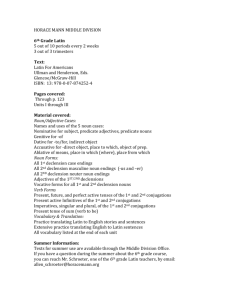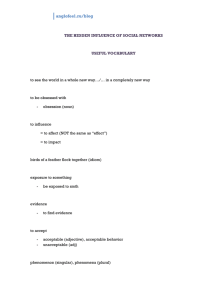Latin Vocabulary
advertisement
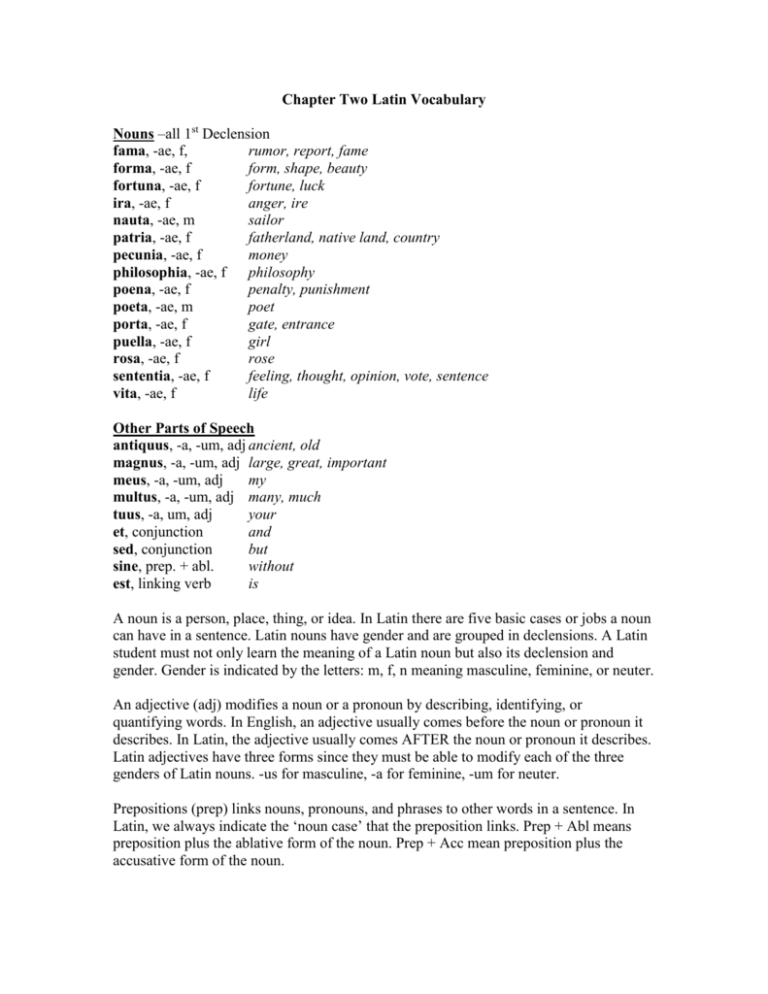
Chapter Two Latin Vocabulary Nouns –all 1st Declension fama, -ae, f, rumor, report, fame forma, -ae, f form, shape, beauty fortuna, -ae, f fortune, luck ira, -ae, f anger, ire nauta, -ae, m sailor patria, -ae, f fatherland, native land, country pecunia, -ae, f money philosophia, -ae, f philosophy poena, -ae, f penalty, punishment poeta, -ae, m poet porta, -ae, f gate, entrance puella, -ae, f girl rosa, -ae, f rose sententia, -ae, f feeling, thought, opinion, vote, sentence vita, -ae, f life Other Parts of Speech antiquus, -a, -um, adj ancient, old magnus, -a, -um, adj large, great, important meus, -a, -um, adj my multus, -a, -um, adj many, much tuus, -a, um, adj your et, conjunction and sed, conjunction but sine, prep. + abl. without est, linking verb is A noun is a person, place, thing, or idea. In Latin there are five basic cases or jobs a noun can have in a sentence. Latin nouns have gender and are grouped in declensions. A Latin student must not only learn the meaning of a Latin noun but also its declension and gender. Gender is indicated by the letters: m, f, n meaning masculine, feminine, or neuter. An adjective (adj) modifies a noun or a pronoun by describing, identifying, or quantifying words. In English, an adjective usually comes before the noun or pronoun it describes. In Latin, the adjective usually comes AFTER the noun or pronoun it describes. Latin adjectives have three forms since they must be able to modify each of the three genders of Latin nouns. -us for masculine, -a for feminine, -um for neuter. Prepositions (prep) links nouns, pronouns, and phrases to other words in a sentence. In Latin, we always indicate the ‘noun case’ that the preposition links. Prep + Abl means preposition plus the ablative form of the noun. Prep + Acc mean preposition plus the accusative form of the noun.
